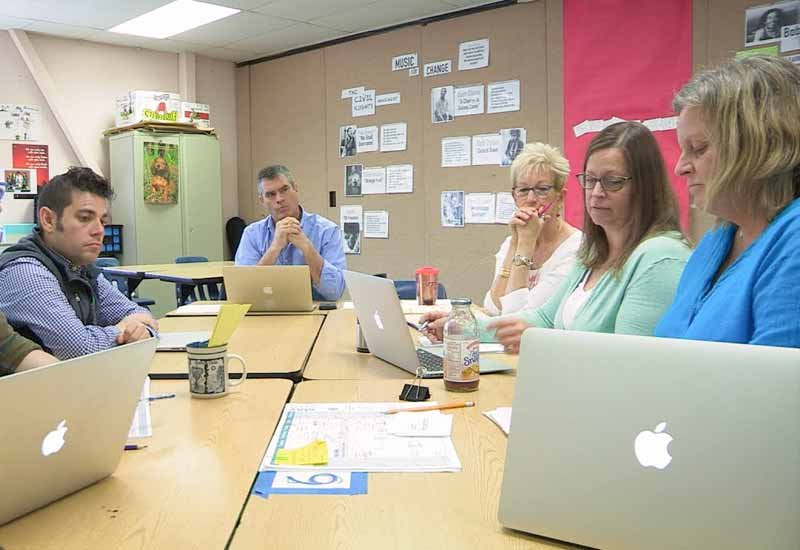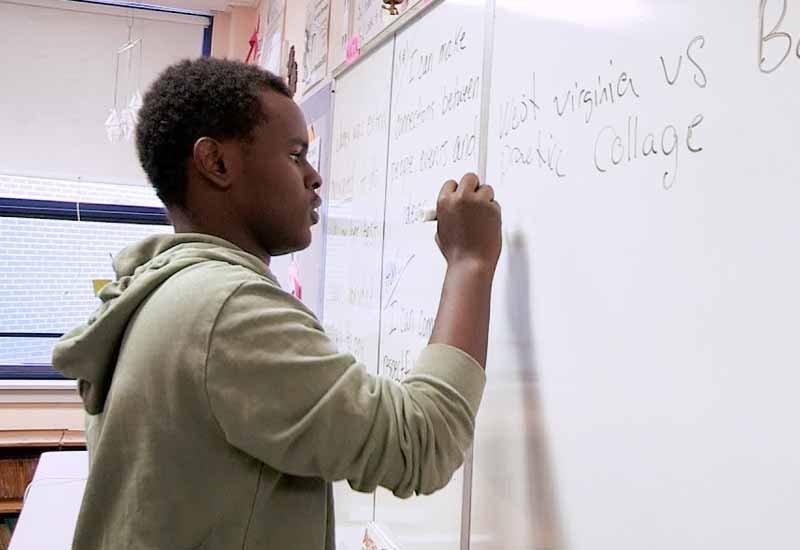
Resource Library
Use the filter options below to find the resources you are looking for.
Gallery | List
Working Memory: Don't Lose It, Use It
Pamela Cantor, M.D. explains what working memory is, how it works, why it's the gateway to learning, and the forces, including social media, that impede its critical function.
All Children Thriving: A New Purpose for Education
Pamela Cantor, M.D. discusses the inequities of the current education system and proposes a new vision for learning grounded in whole-child development.
How to Gain ‘Magic Muscles’ After Pandemic Learning Loss
The struggle to overcome learning loss and build resiliency.
How A.I. Chatbots Could Solve The Two Sigma Problem
Don't be afraid of A.I. Chatbots. They could be key to boosting your child's learning.
The 180 Podcast | Todd Rose: How ‘Collective Illusions’ Hold Back Education—and How We Can Fix Them
“The desire to fit in is one of the most powerful, least understood forces in a society.” That’s what Todd Rose writes in his book, Collective Illusions: Conformity, Complicity, and the Science of Why We Make Bad Decisions.
The 180 Podcast | Zaretta Hammond: How Teachers Can Become Personal Trainers of Cognitive Development (Part 2)
In part two, Zaretta Hammond outlines practical steps for teachers to become, ideally, personal trainers of cognitive development.
The 180 Podcast | Zaretta Hammond: What is Culturally-Responsive Teaching? (Part 1)
What if children find themselves in spaces that teacher, educator, and author Zaretta Hammond calls “inequitable by design,” that prevent instead of promote safety and belonging?
The 180 Podcast | Dan Cogan-Drew: Helping Students Become Agents of Their Own Learning
What experiences can education technology offer to support those relationships and spur engagement and motivation to learn?
The 180 Podcast | Ron Berger and Laina Cox: You Can’t Separate Character from Student Success
How learning can and should work in the face of a pandemic, social unrest, and more.
Developing Confidence with Delayed Grading
Giving students time to explore ideas with no immediate grade pressure helps motivate them to be creative and take intellectual risks.
Building a Belonging Classroom
In order to learn, students need to feel safe, cared for, and emotionally connected to their teachers and each other.
Implications for Educational Practice of the Science of Learning and Development
A research synthesis by Linda Darling-Hammond aimed at educators.
Motivating Students with Book Choice
Letting students choose books to read helps them develop a sense of autonomy and ownership over their learning.
Knowing Every Child through Index Card Rosters
By regularly reviewing students’ behavior and learning as a team, teachers can ensure that every student is seen, supported, and celebrated.
Cultivating Trust with One-on-One Time
For many struggling students, consistently spending informal time with a trusted educator supports emotional well-being and academic growth.
Making Connections with Greetings at the Door
Research shows that greeting students as they come into class bolsters a feeling of belonging and readiness to learn.
The Power of Relationships in Schools
Research shows that students who feel safe and supported by adults at school are better able to learn.
Boosting Engagement with Notices and Wonders
When students make “I notice” and “I wonder” comments on course content, teachers can see what they know—and what they need to learn.
Fostering Belonging with Classroom Norms
When students help create their classrooms' rules and culture, they’re more engaged and invested in learning.
Getting Started with Trauma-informed Practices
When teachers use strategies tailored to children who have experienced trauma, all students reap the emotional and academic benefits.
Getting Ready to Learn with Mindfulness
Research shows that taking some time each day to practice mindfulness as a class helps students prepare themselves for learning.
Activating the Brain with Movement Breaks
Research shows that taking some time each day to practice mindfulness as a class helps students prepare themselves for learning.
Demonstrating Self-Regulation with Tone of Voice
When teachers model self-regulation by using a voice that is calm, neutral, and assertive, they help students feel cared for—and ready to learn.
Developing Executive Function Skills with Priority Lists
Explicitly modeling the process of prioritizing tasks builds students’ ability to organize and manage their time.
Teaching Self-Regulation Through Modeling
The key is giving students the decision-making tools they need to shape their own learning experiences.
The Science of Learning and Development
The research is clear: Strong relationships with educators help students develop the cognitive skills they need to learn and thrive.
Scaffolding Discussion Skills With a Socratic Circle
Students deepen their understanding and build a sense of community by engaging with their peers’ reasoned arguments.
Encouraging Academic Conversations with Talk Moves
Sentence starters that students use to join a class discussion encourage both academic thinking and social connectedness.
Malleability, Plasticity, and Individuality—How Children Learn and Develop in Context
A synthesis of foundational knowledge from multiple scientific disciplines regarding how humans develop in context.
NBC News Education Nation Summit
NBC News' Hoda Kotbe interviews Pamela Cantor, M.D., actress Goldie Hawn, Superintendent Dr. Meria Joel Carstarphen, and Principal Peter DeWitt on what it takes to build safe and supportive schools.
Psychopathology among New York City public school children 6 months after September 11
Children exposed to a traumatic event may be at higher risk for developing mental disorders.






























